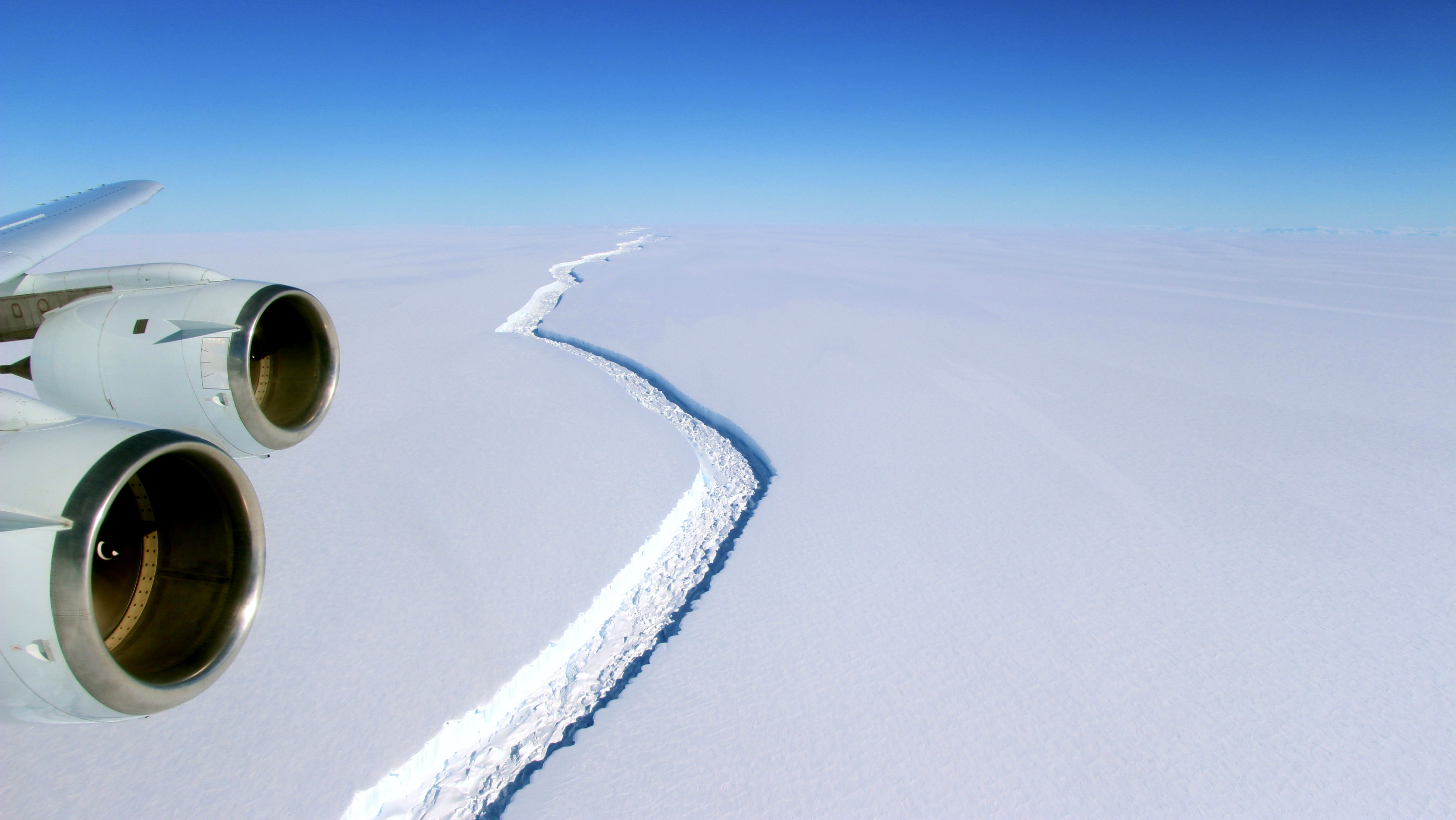Large part of Antarctic ice shelf is due to snap off
Crack has grown 11 miles in just six days

A free daily email with the biggest news stories of the day – and the best features from TheWeek.com
You are now subscribed
Your newsletter sign-up was successful
A massive stretch of ice is set to break off from one of Antarctica's largest ice shelves and create the world's biggest iceberg.
The crack in the Larsen C shelf, which has grown slowly for decades, recently started to accelerate. In just six days it has grown by an astonishing 11 miles.
Scientists have been tracking the rift growing along the Larsen C shelf for years. They now say the fracture is within eight miles of the sea and that there is "nothing to stop it fracturing".
The Week
Escape your echo chamber. Get the facts behind the news, plus analysis from multiple perspectives.

Sign up for The Week's Free Newsletters
From our morning news briefing to a weekly Good News Newsletter, get the best of The Week delivered directly to your inbox.
From our morning news briefing to a weekly Good News Newsletter, get the best of The Week delivered directly to your inbox.
Experts are waiting to see whether the process has been affected by climate change, reports Sky News.
At around the same size of the Caribbean nation of Trinidad and Tobago, the fragment will become one of the largest icebergs ever recorded once it breaks off.
The shelf is around 350m thick and is currently located at the edge of Western Antarctica.
Scientists at Project Midas, a UK-based research group studying the shelf, sayt there is very little time left until the fragment separates. The event has far-reaching consequences. It would change the Antarctic landscape dramatically, creating an unstable shelf.
A free daily email with the biggest news stories of the day – and the best features from TheWeek.com
Adrian Luckman, a Project Midas scientist, said: "We have previously shown that the new configuration will be less stable than it was prior to the rift, and that Larsen C may eventually follow the example of its neighbour Larsen B, which disintegrated in 2002 following a similar rift-induced calving event."
While the Larsen C event is believed to be the result of natural geophysical processes, scientists widely accept that climate change was a contributing factor in the disintegration of the Larsen A and Larsen B shelves in 1995 and 2002 respectively.